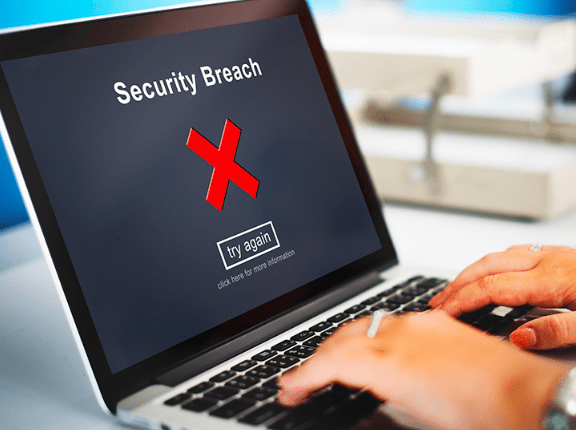
By Scott Hamilton
As a financial advisor, my top priority is helping clients pursue their goals while managing and safeguarding their wealth. With the increasing prevalence of cyber attacks, the job of safeguarding your wealth is becoming more expansive, into areas we previously hadn’t thought about. It’s more important than ever to take steps to shield yourself and your financial assets, especially online. In this post, I’ll share some practical tips and best practices for protecting yourself from cyber attacks. By following these steps, you can reduce your risk and help keep your personal and financial information safe.
Table of Contents
Password Manager
Having a password manager helps to securely store and organize all your passwords, allowing you to create strong and unique passwords for each of your accounts. This reduces the risk of having your accounts compromised due to weak or reused passwords. Additionally, a password manager helps streamline the login process and eliminate the need to remember multiple passwords. Sites like LastPass and 1Password are two options to consider.
VPN
Using a VPN enhances online privacy by encrypting your internet traffic and masking your IP address. This helps to protect sensitive personal and financial information, such as login credentials and online banking transactions, from being intercepted by cybercriminals. A VPN should be used all the time on your iPhone, iPads, laptops, and other devices. Some good options for a VPN service include ExpressVPN and NordVPN.
Encryption
Encrypting storage devices, such as laptops and external hard drives, helps protect the confidentiality and integrity of stored data. If the device is lost or stolen, encrypted data will be unreadable without the proper decryption key, reducing the risk of sensitive information falling into the wrong hands. Apple computers have FireVault installed on them which encrypts the information on the Mac. To enable FireVault follow these easy steps.
Firewalls
Using a firewall helps increase overall network security and reduce the risk of data breaches and cyber threats. Essentially, they help prevent unauthorized applications, programs, and services from accepting incoming connections.
Anti-Malware
Anti-malware programs help protect against a range of threats, including viruses, worms, Trojans, spyware, and other forms of malware that can cause harm to your computer or steal sensitive information. Regular use of anti-malware programs helps prevent system slowdowns, crashes, and other issues caused by malware infections, providing a critical layer of security for any computer or device. Some options for anti-malware protection include Malwarebytes and Avast.
Update Software
Regularly updating software programs ensures that security vulnerabilities and bugs are fixed, protecting the software and any sensitive data it may handle. To increase your computer’s performance and lower the risk of attacks, keep your operating systems, software, and anti-malware programs updated.
Update Hardware
Using modern hardware can also help provide the best security advancements against cyber threats. Hardware includes routers, Wi-Fi, computers, phones, laptops, etc.
Cyber Hygiene
Cyber hygiene refers to basic practices and habits to maintain the security and privacy of personal and sensitive information when using technology. To protect yourself, be more cautious about clicking on links that come to your email, which can be “phishing” attempts to get you to click on a fake link so the hacker can obtain your username and password.
Public Wi-Fi and Cell Signals
Using public Wi-Fi networks can be risky because they often lack encryption and proper security measures, leaving sensitive information vulnerable to interception and theft by cybercriminals. Cell signals can also be spoofed by creating a fake cell tower, allowing an attacker to intercept voice and data communications, steal sensitive information, and even manipulate GPS data. To lower these risks, if you need to use public Wi-Fi, be sure to use a VPN.
Choosing the Right Devices
Next time you’re in the market to buy a new laptop, cell phone, or tablet, take the time to learn about the security and protection features your new device offers. Generally, Apple products tend to be more secure than others. However, the biggest weak spot in terms of security is human error! Many hacks rely on people making careless mistakes and revealing usernames, passwords, or other access to personal information.
Defend Your Wealth
I know that a lot of the things discussed above aren’t familiar to everyone. Yet if you want to protect yourself from cyber attacks, it’s essential to safeguard your personal information and financial accounts. If you need help understanding how to do that, I’d love to help. You can schedule a complimentary get-acquainted meeting online or reach out to us at 512-261-0808 or scott@hamiltonfinancialplanning.com.
About Scott
Scott Hamilton is founder and chief financial officer at Hamilton Financial Planning, a wealth management firm that specializes in providing comprehensive financial planning for retirees. With over 20 years of experience in the financial industry, and having completed over 250 financial plans for retirees across all industries, but mostly the oil and gas industry, Scott is passionate about providing his clients with the tools and insight they need to achieve their financial goals. He has a Bachelor of Business Administration in finance from Texas State University and an MBA in international finance from Pepperdine University. Scott has also been happily married to his wife, Gayle, for over 25 years. To learn more about Scott, connect with him on LinkedIn.

